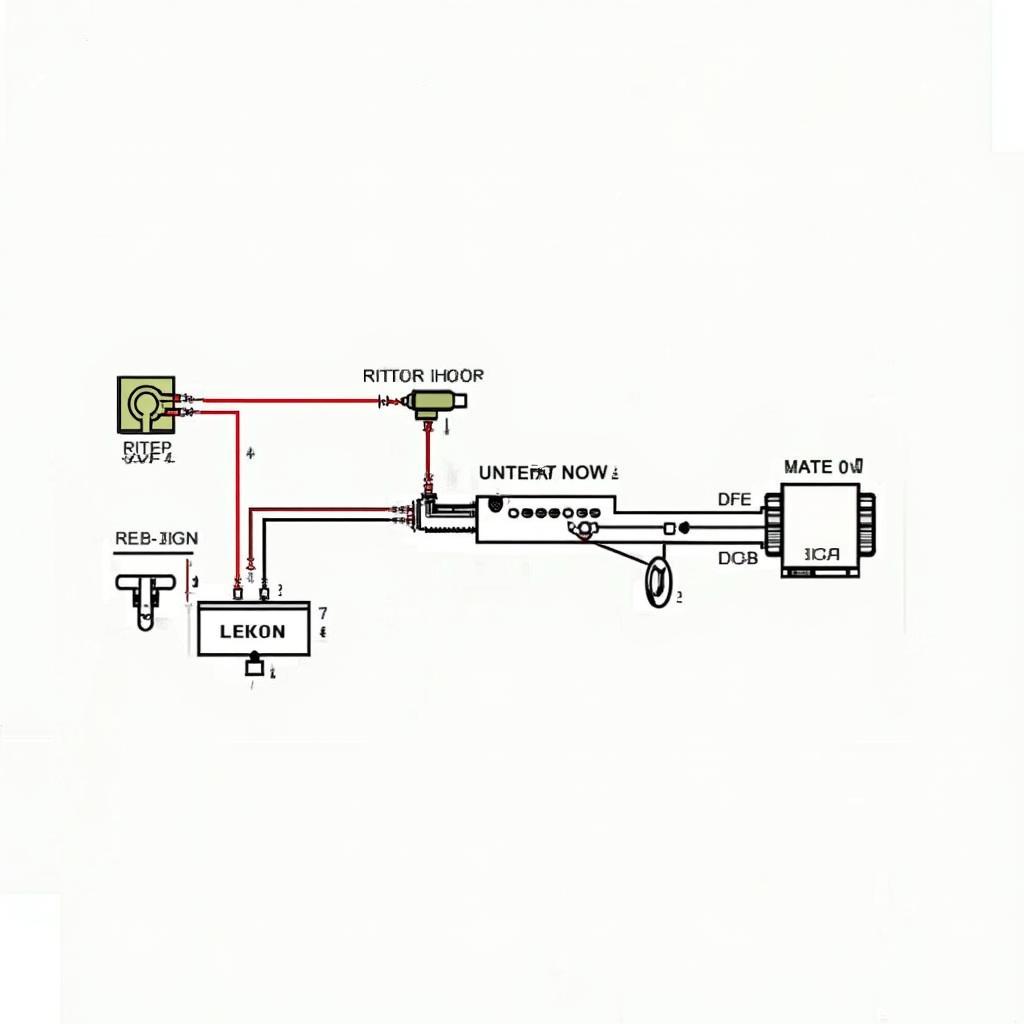The OBD2 P0141 code indicates a problem with the oxygen sensor circuit, specifically the downstream sensor after the catalytic converter. This code can be frustrating, but understanding what it means and how to address it can save you time and money. Let’s dive into the details of the obd2 p0141 code and empower you to take control of your vehicle’s health. We’ll cover everything from the basics to advanced diagnostics, ensuring you’re well-equipped to handle this common OBD2 trouble code.
What Does OBD2 P0141 Mean?
The P0141 code specifically points to a malfunction in the heater circuit of the downstream oxygen sensor (sensor 2). This sensor plays a crucial role in monitoring the efficiency of the catalytic converter. A functioning heater allows the sensor to reach its optimal operating temperature quickly, providing accurate readings to the engine control unit (ECU). When the heater circuit malfunctions, the sensor takes longer to warm up, impacting its ability to provide accurate data. This can lead to decreased fuel efficiency, increased emissions, and potentially even damage to the catalytic converter. You can learn more about this specific code by visiting our [obd2 code p0141] page.
Common Causes of OBD2 P0141
Several factors can contribute to a P0141 code. Understanding these potential culprits can help you pinpoint the problem more efficiently. Here are some of the most common causes:
- Faulty Oxygen Sensor: The most obvious culprit is often a failing oxygen sensor itself. Over time, the sensor can degrade due to exposure to high temperatures and exhaust gases.
- Damaged Wiring: Exposed or damaged wiring in the sensor circuit can lead to shorts or open circuits, disrupting the heater circuit’s operation.
- Blown Fuse: A blown fuse in the oxygen sensor circuit can completely cut off power to the heater, triggering the P0141 code.
- Faulty ECU: In rare cases, a malfunctioning ECU can incorrectly report a P0141 code. However, this is less common than other causes.
Diagnosing OBD2 P0141
Diagnosing a P0141 code requires a systematic approach. Here’s a step-by-step guide to help you troubleshoot the problem:
- Check for other codes: Sometimes, other OBD2 codes can accompany a P0141. Addressing these related codes first can sometimes resolve the P0141 issue as well. For more information, you can check our page on [obd2 p0141 xj].
- Visually inspect the wiring: Carefully examine the wiring harness leading to the downstream oxygen sensor for any signs of damage, corrosion, or loose connections.
- Check the fuse: Locate and inspect the fuse for the oxygen sensor circuit. Replace it if necessary.
- Test the sensor’s heater circuit: Use a multimeter to test the resistance and voltage of the sensor’s heater circuit. This will help you determine if the sensor itself is faulty or if there’s a problem with the wiring.
- Consult a professional: If you’re unable to pinpoint the cause or are uncomfortable working with electrical components, consult a qualified mechanic.
How to Fix OBD2 P0141
Once you’ve identified the cause of the P0141 code, you can take the appropriate steps to fix it. This might involve:
- Replacing the oxygen sensor: If the sensor is faulty, replacement is the most common solution.
- Repairing the wiring: Damaged wiring can often be repaired with soldering or by using connectors.
- Replacing the fuse: A blown fuse is a simple fix, just make sure to use the correct amperage. You can also check our page on [obd2 fault p0141] for more troubleshooting tips.
What Happens if I Ignore OBD2 P0141?
Ignoring a P0141 code can lead to several problems:
- Decreased fuel economy: A malfunctioning oxygen sensor can disrupt the air-fuel mixture, leading to increased fuel consumption.
- Increased emissions: A faulty sensor can negatively impact the catalytic converter’s ability to reduce harmful emissions.
- Damage to the catalytic converter: Over time, a malfunctioning downstream oxygen sensor can contribute to damage to the catalytic converter, requiring a costly replacement.
“Ignoring any OBD2 code, especially one related to emissions, is never a good idea. It’s always best to address the issue promptly to prevent further damage and maintain optimal vehicle performance,” advises John Smith, Senior Automotive Diagnostic Technician at Acme Auto Repair.
Preventing OBD2 P0141
While not all causes of P0141 are preventable, regular vehicle maintenance can help minimize the risk. This includes:
- Regular inspections of wiring and connectors
- Using quality fuel
- Addressing other OBD2 codes promptly For Chevy owners, we have a dedicated page addressing this specific issue: [obd2 code p0141 chevy].
“Preventive maintenance is key to avoiding many common car problems. Regular check-ups can help identify potential issues before they escalate into costly repairs,” adds John Smith.
Conclusion
The OBD2 P0141 code, indicating a problem with the downstream oxygen sensor heater circuit, requires prompt attention. By understanding the causes, diagnostic procedures, and solutions outlined in this article, you can effectively address this code and keep your vehicle running smoothly. Remember, ignoring the obd2 p0141 can lead to further problems and more expensive repairs down the line. Regular maintenance and prompt diagnosis are crucial for preventing this and other OBD2 codes. More information on this and related codes can be found on our [obd2 po141] page.
FAQ
- What is an oxygen sensor?
- What does downstream oxygen sensor mean?
- Can I drive with a P0141 code?
- How much does it cost to replace an oxygen sensor?
- How long does it take to replace an oxygen sensor?
- Will clearing the code fix the problem?
- Can a bad catalytic converter cause a P0141 code?
Need help? Contact us via WhatsApp: +1(641)206-8880, Email: cardiagtechworkshop@gmail.com or visit us at 789 Elm Street, San Francisco, CA 94102, USA. Our 24/7 customer support team is always ready to assist.


